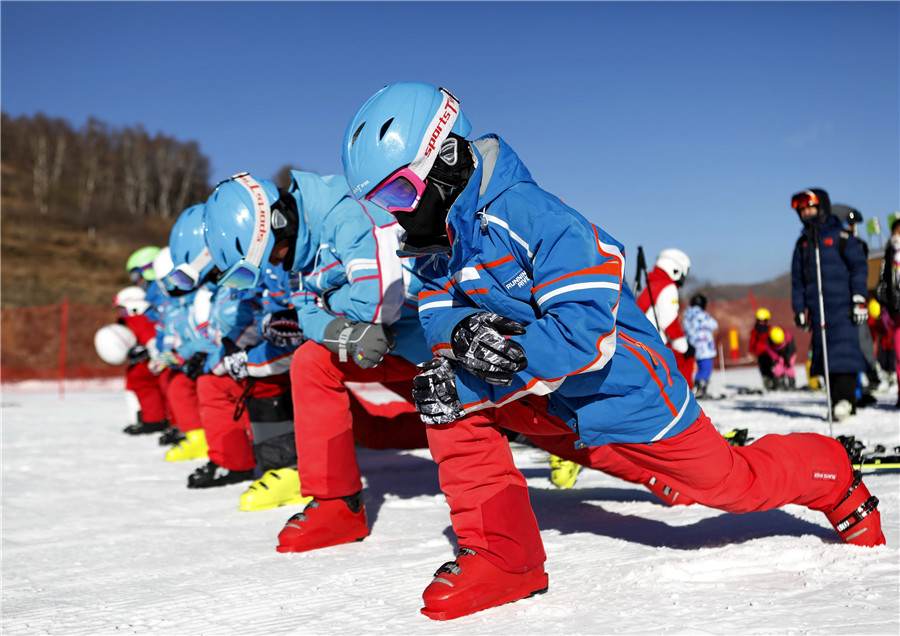Organizers look to secure Olympic legacy


Sustainable game changer
The 2022 Winter Games will be held at 26 competition and noncompetition venues in three zones: downtown Beijing; Yanqing, a district in the city's northwestern suburbs; and co-host Zhangjiakou in Hebei province. The clusters will be connected by a new high-speed railway, which is due to be completed by the end of the year.
At the core of Beijing's venue readiness is the use of existing facilities, which is intended to cut spending while diversifying the venues' operations.
For the 13 venues required for competition and non-competition functions in the downtown, where the ice sports events will be held, Beijing will repurpose 11 existing venues and other projects left over from the 2008 Games.
For example, the National Aquatics Center-aka "the Water Cube", which hosted the swimming events in 2008-will be transformed into an "Ice Cube" for the curling competition by filling the pool with retractable structures and covering them with sheets of ice. Work is already underway.
Being able to shift between swimming and curling will diversify the venue's business operations, revenue stream and public services, said Yang Qiyong, general manager of the facility.
To the north of the Cube, the National Indoor Stadium-built to host gymnastics in 2008-is upgrading its temperature-control system and lighting facilities as it is remodeled to hold ice hockey events in 2022.
The transformation of both venues is expected to be finished by the end of the year, while the remodeling of all existing facilities, including the Bird's Nest and the National Convention Center, for ceremonies and media operations will be completed in 2021, according to the Beijing Major Projects Construction Headquarters Office, the regulatory body for construction.
"As a key milestone leading up to 2022, venue readiness will take a major step forward in 2019, with construction and renovation going on across all fronts. We are well ahead of schedule to be ready for a series of test events starting in early 2020," said Wang Gang, director of the office.
According to the official legacy plan released by Beijing 2022 last month, some new, permanent venues, such as the National Speed Skating Oval in the downtown and the National Alpine Ski Center in Yanqing, have developed post-Games business models, not just for sports but also tourism and exhibitions.
"Here, you have the venues from 2008 that are going to be used in 2022 for a complete set of winter sports. This is a wonderful legacy story," said Juan Antonio Samaranch, vice-president of the International Olympic Committee, during a visit to Beijing in January.
According to construction regulators in Beijing and Hebei, all of the venues for 2022 will be ready by June next year. They include eight in Zhangjiakou, which will be used for six snow sports: snowboarding; freestyle skiing; cross-country skiing; ski jumping; Nordic combined; and biathlon.
























